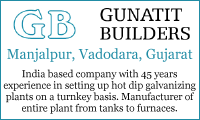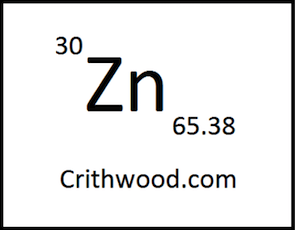
Curated with aloha by
Ted Mooney, P.E. RET

The authoritative public forum
for Metal Finishing 1989-2025

-----
Good materials for galvanizing kettle support
September 2, 2011
Q. CAN YOU HELP TO FIGURE OUT GOOD MATERIALS FOR PROVIDING KETTLE SUPPORT?
Gunatit Builders
Manjalpur, Vadodara, Gujarat

A. Steel.

Geoff Crowley
Crithwood Ltd.
Westfield, Scotland, UK

First of two simultaneous responses -- May 11, 2012
A. Sir:
My "hands on" experience is limited, however, "in the old days" I recall that kettles are usually set upon leveled, reinforced concrete of perhaps two or three feet thick. Upon this concrete base it was common to put two layers of fire brick or insulated fire brick. Sometimes several inches of leveled dry river sand was used on top of the concrete. In more recent times a cast-able insulated material several inches thick is being used. Be sure that the top edge down and the bottom up (vertical) areas of the kettle are insulated to prevent early kettle failure at the zinc/air interface and the dross/zinc interfaces are protected from overheating. If you do not know what I am writing about then find someone that has experience. For flat-flame, side-fired furnace figure that 50% of the flame energy will pass through the heating zone on the sides of the kettle. This transmission of heat is limited to 10,000 BTU/square foot/hour. If you are using end-fired, high-velocity burners then 67% of the energy passes through the kettle walls. I have published a useful article on this subject in the journal METAL FINISHING.
Regards,
Galvanizing Consultant - Hot Springs, South Dakota, USA
Q, A, or Comment on THIS thread -or- Start a NEW Thread